Sometimes you just need to get away. Away from all of civilization. Take a car and disappear into a forest or onto the horizon of a desert. Camping offers a delightful escape from the hustle of daily life, providing a chance to reconnect with the natural world and refresh your spirit. There is a peace out there away away from the constant hum of technology. Immerse yourself in the tranquil embrace of the great outdoors. When camping we unwind and enjoy life’s simpler pleasures. Whether you’re a seasoned traveler or new to outdoor adventures, making space in your bag for the camping essentials will make your experience as comfortable and enjoyable as possible.
In this post, we will guide you through the must-have gear for a relaxing outdoor escape, offering tips to ensure your camping trip is both memorable and rejuvenating. Join us as we explore the perfect blend of adventure and serenity that camping has to offer, creating lasting memories under the stars.
The Benefits of Camping
Camping offers a wealth of advantages for both physical and mental well-being. Let’s explore the key benefits that make camping a truly rewarding experience.
Connecting with Nature
Camping provides an unparalleled opportunity to immerse yourself in the natural world. This connection with nature will have profound effects on your overall well-being.
Spending time outdoors has been shown to reduce stress levels and improve mood. The fresh air, natural scenery, and peaceful surroundings will help calm your mind and rejuvenate your spirit.
Camping also allows you to observe wildlife in their natural habitats. This will foster a deeper appreciation for the environment around you.
Moreover, the physical activities associated with camping, such as hiking or swimming, will improve your fitness and boost your immune system.
Check out our article on how to plan a hike!
Building Bonds Outdoors
Camping creates an ideal environment for strengthening relationships with family and friends. The shared experiences and challenges of outdoor living bring people closer together.
Without the distractions of daily life, campers can engage in more meaningful conversations and activities leading to improved communication and a deeper understanding of one another.
Collaborative tasks like setting up camp, preparing meals, or planning hikes foster teamwork and cooperation. Shared responsibilities strengthen bonds and create lasting memories.
For families, camping offers a unique opportunity for children to learn new skills and gain independence in a supportive environment boosting their confidence and self-reliance.
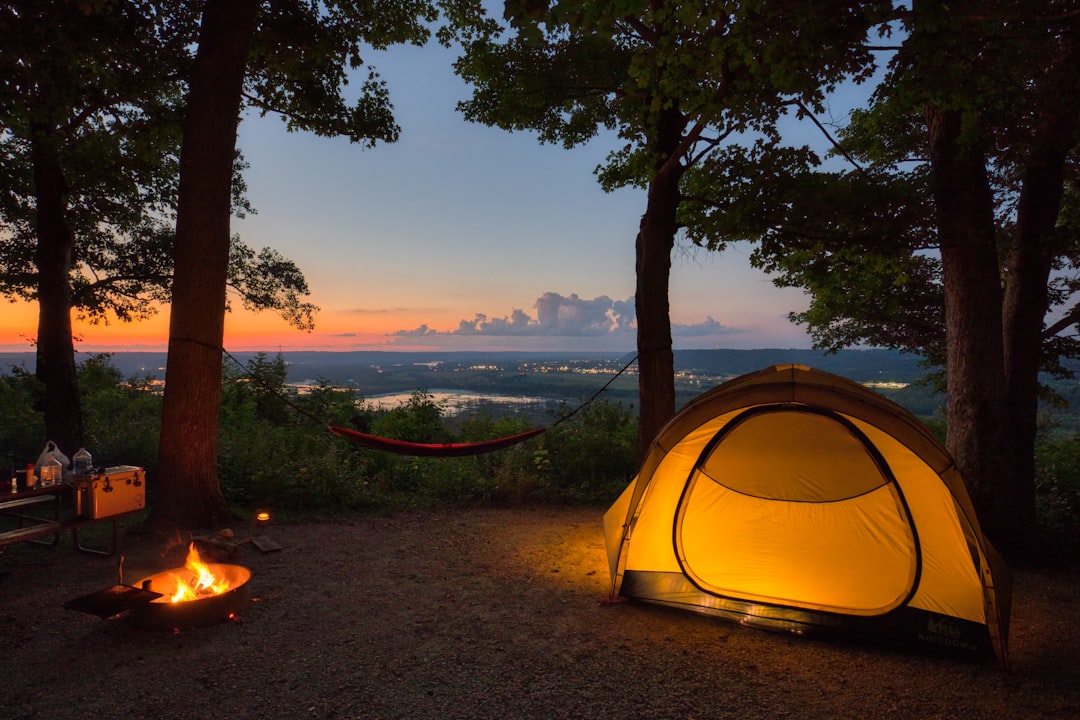
Detaching from Technology
One of the most valuable aspects of camping is the chance to disconnect from the constant barrage of digital information and reconnect with the present moment. If you are lucky there will be no internet service in the camp.
Stepping away from screens and notifications allows you to focus on your surroundings and the people you’re with. Digital detox leads to improved mental clarity and reduced anxiety.
We have better sleep quality when away from the blue light of devices. The natural light cycles and physical activity associated with camping will help reset your circadian rhythm.
A break from technology also sparks creativity and problem-solving skills as you adapt to the simplicity of outdoor living.
Essential Camping Gear for Comfort
To ensure a relaxing outdoor escape, we need the right equipment. Let’s explore the must-have gear that will make your camping trip comfortable and enjoyable.
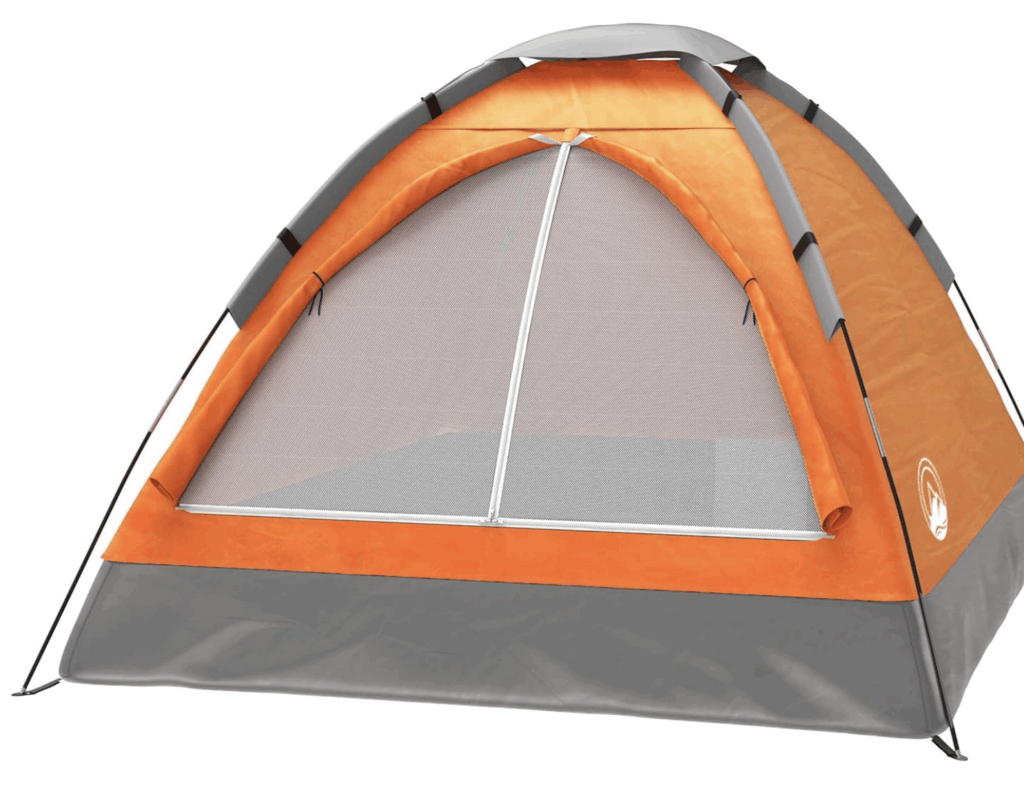
Choosing the Right Tent
Selecting an appropriate tent is fundamental to a successful camping trip. Your tent serves as your home away from home, providing shelter and comfort in the wilderness.
Consider the size of your group when choosing a tent. A general rule is to select a tent rated for one or two more people than will actually be using it, to ensure ample space for gear and comfort.
Weather conditions are another crucial factor. For three-season camping, look for tents with good ventilation and a full-coverage rainfly. For winter camping, four-season tents offer better insulation and stronger construction to withstand harsh conditions.
Ease of setup is also important, especially for beginners. Many modern tents feature color-coded poles and clip-on attachments for quick assembly.
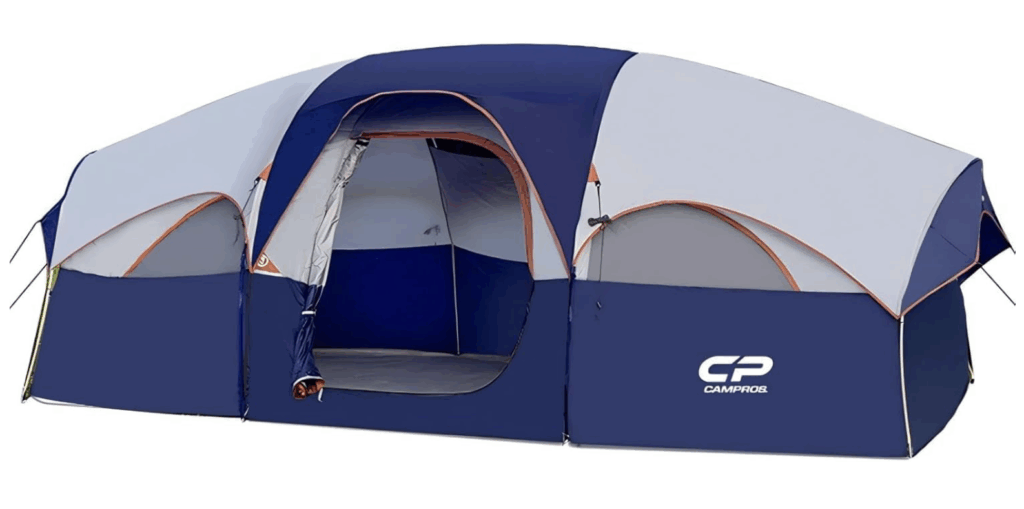
CAMPROS CP Tent 8 Person Camping Tents, Weather Resistant Family Tent
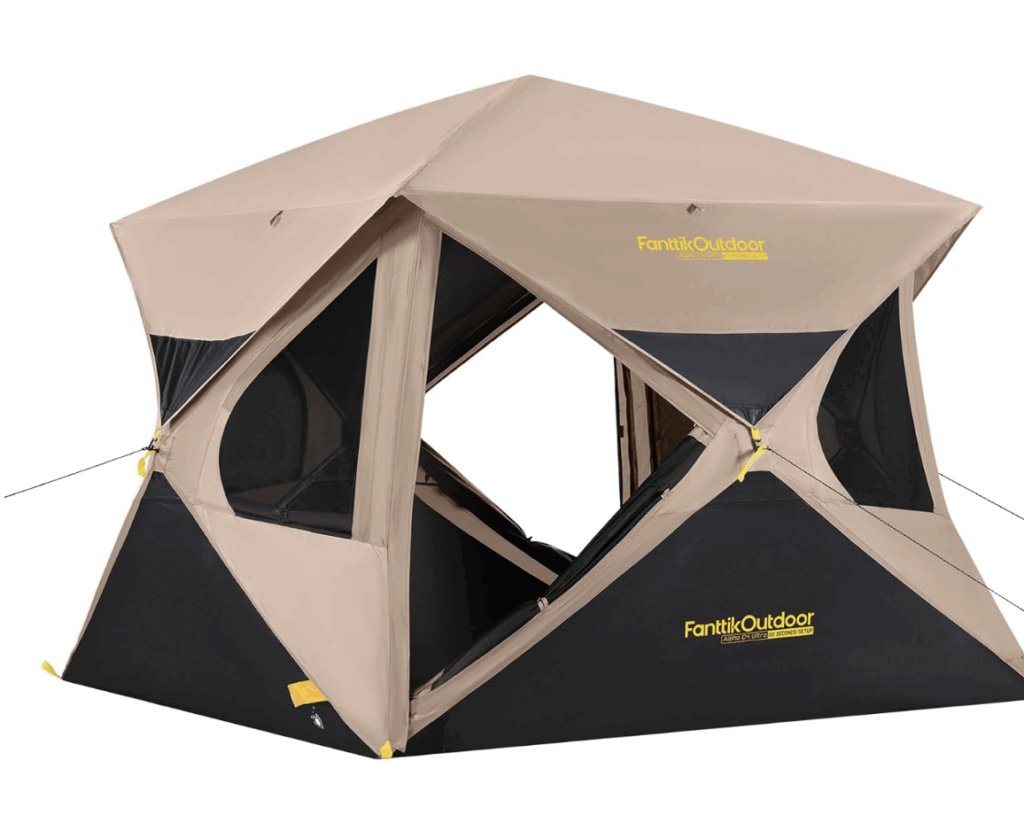
Hammocks and Sleeping Bags
Sleeping bags are essential for a comfortable night’s sleep in the great outdoors.
Hammocks offer a lightweight, portable sleeping option that keeps you off the ground. They’re perfect for relaxing during the day and can serve as an alternative to tent sleeping in fair weather.
When choosing a sleeping bag, consider the temperature rating. Select a bag rated for temperatures slightly lower than what you expect to encounter to ensure warmth throughout the night.
The shape of the sleeping bag is also important. Mummy bags offer the best insulation but less room to move, while rectangular bags provide more space but less warmth.
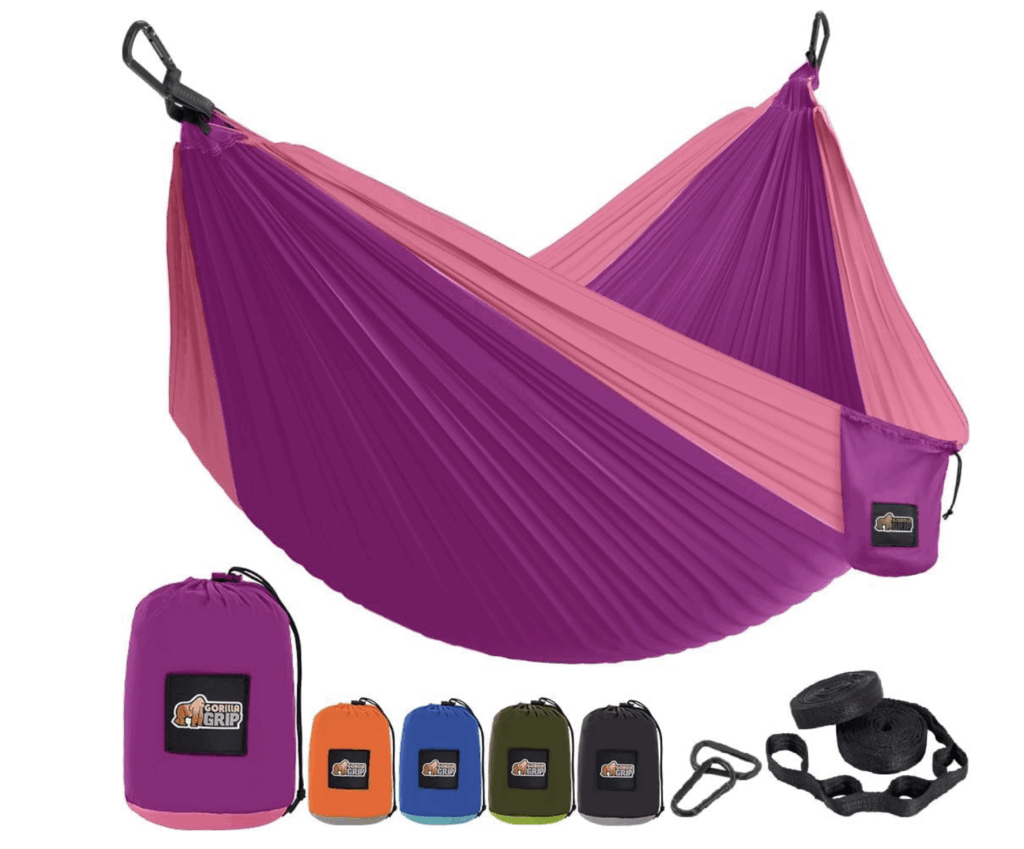
A hammock will transform your camping experience, offering a comfortable spot to relax and enjoy nature. The Wise Owl Outfitters Camping Hammock is an excellent choice for both novice and experienced campers.
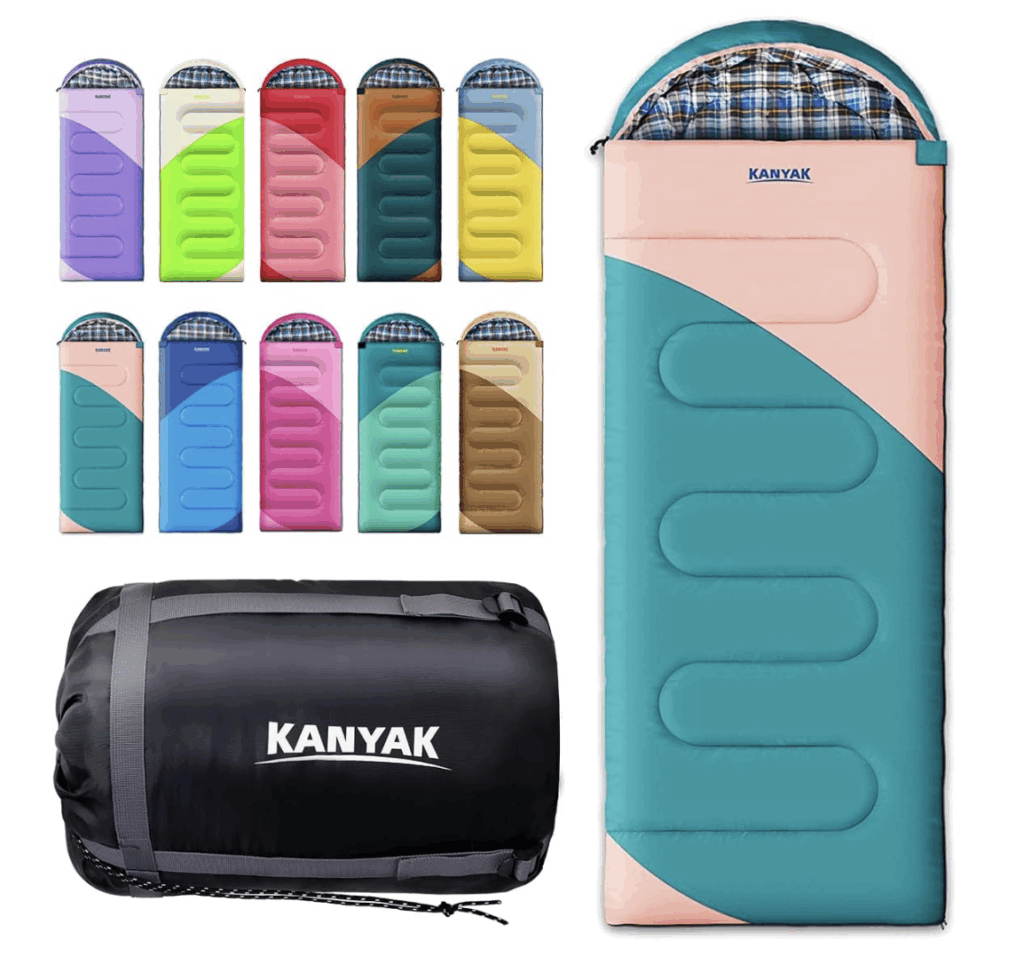
Insect Repellent is a Camping Essential
Effective insect repellent is crucial for a comfortable camping experience. It helps protect you from annoying and potentially harmful insect bites.
Look for repellents containing DEET or picaridin for broad-spectrum protection against mosquitoes, ticks, and other biting insects. Natural alternatives like oil of lemon eucalyptus are also effective.
Apply repellent to exposed skin and clothing, paying special attention to ankles, wrists, and neck. Reapply as directed, especially after swimming or excessive sweating.
Consider bringing a combination of repellent products, such as sprays for quick application and wipes for targeted use on face and hands.
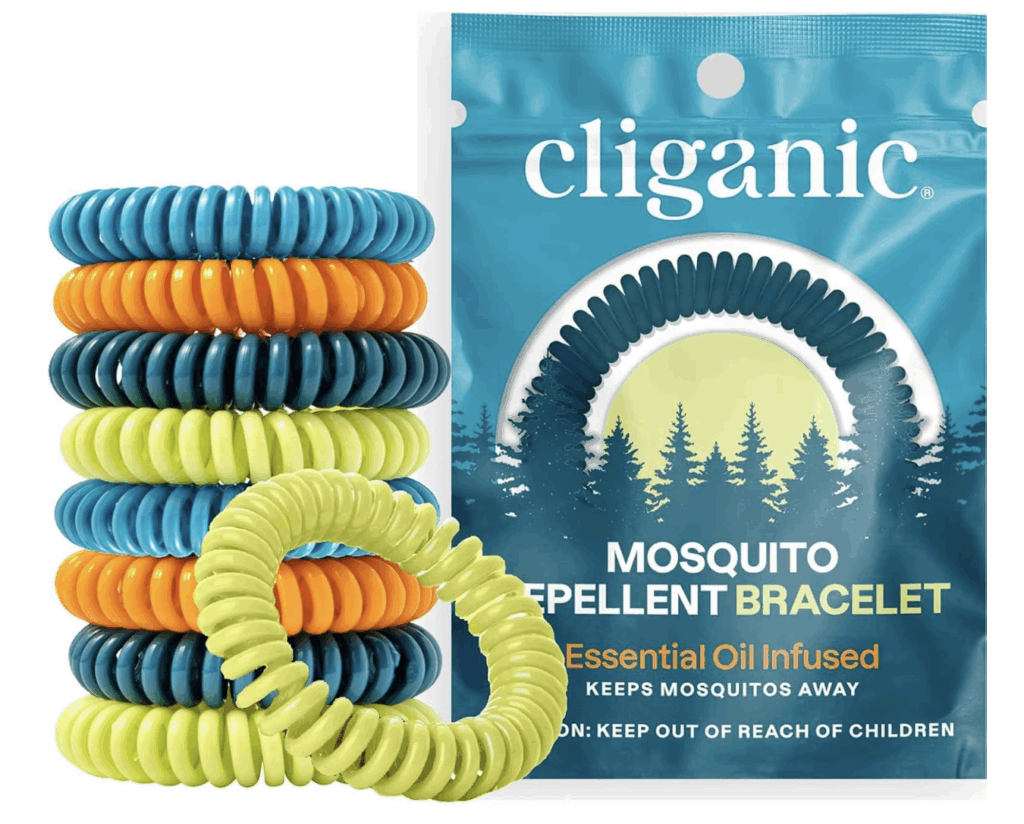
Sawyer Products 20% Picaridin Insect Repellent
Setup the Perfect Camp
Creating a well-organized campsite enhances comfort and efficiency during your outdoor adventure. Let’s explore key elements of a perfect camp setup.
Organizing Your Camp Kitchen
A well-planned camp kitchen is essential for enjoyable outdoor meals. Proper organization makes cooking in nature a pleasure rather than a chore.
Start by selecting a flat, dry area for your kitchen setup. Use a folding table or a clean, flat rock as your food preparation surface.
Pack versatile cooking equipment like a camp stove, a pot, a pan, and utensils. Don’t forget essential items like a can opener, cutting board, and sharp knife.
Store food in airtight containers or bear-proof canisters to protect it from wildlife and keep it fresh. Organize your supplies in clear, labeled bins for easy access.
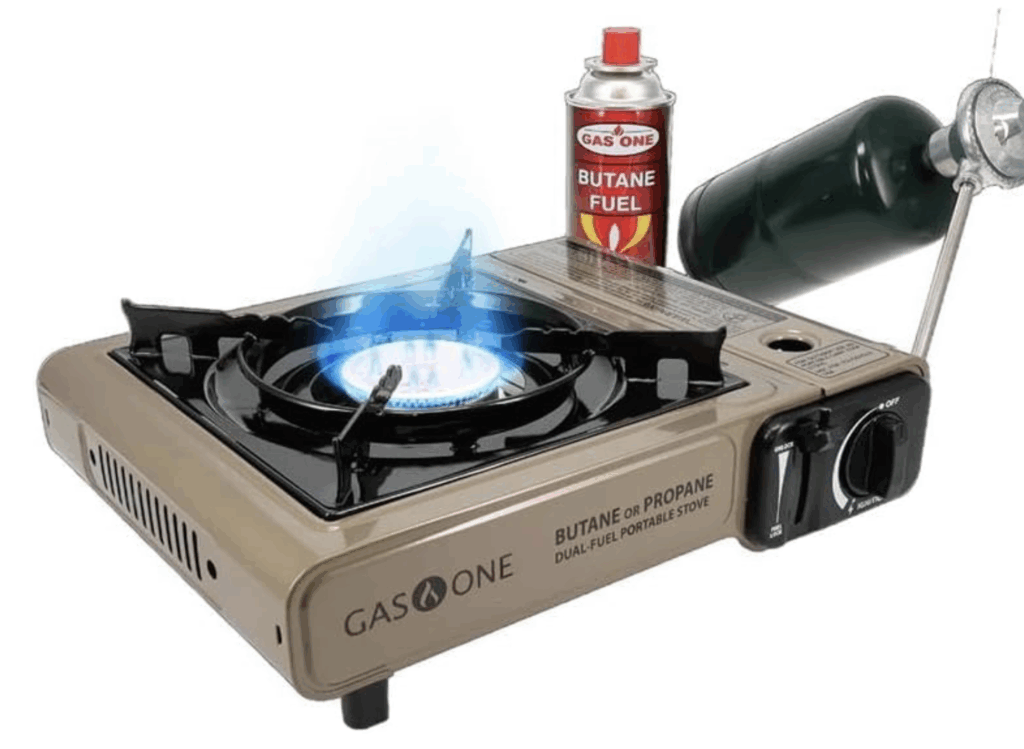
Gas One GS-3400P Propane or Butane Stove Dual Fuel Stove Portable Camping Stove
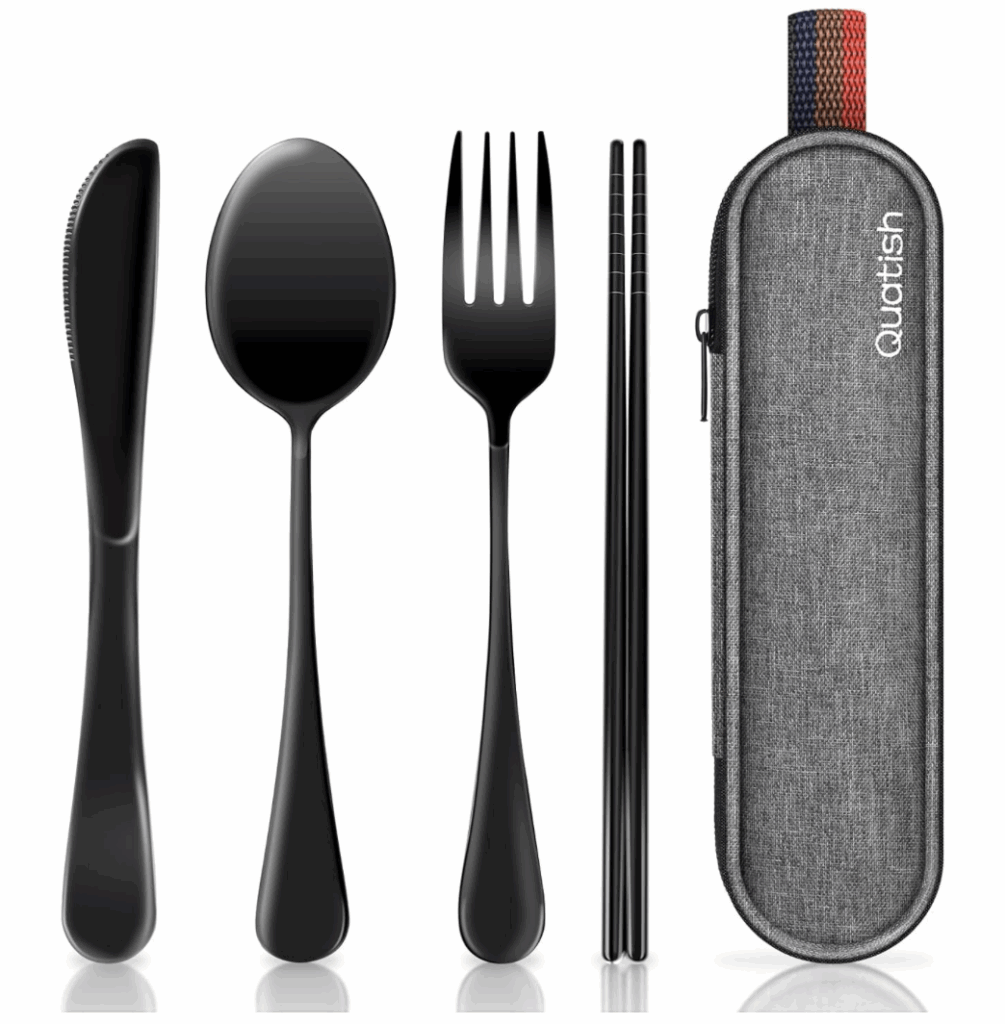
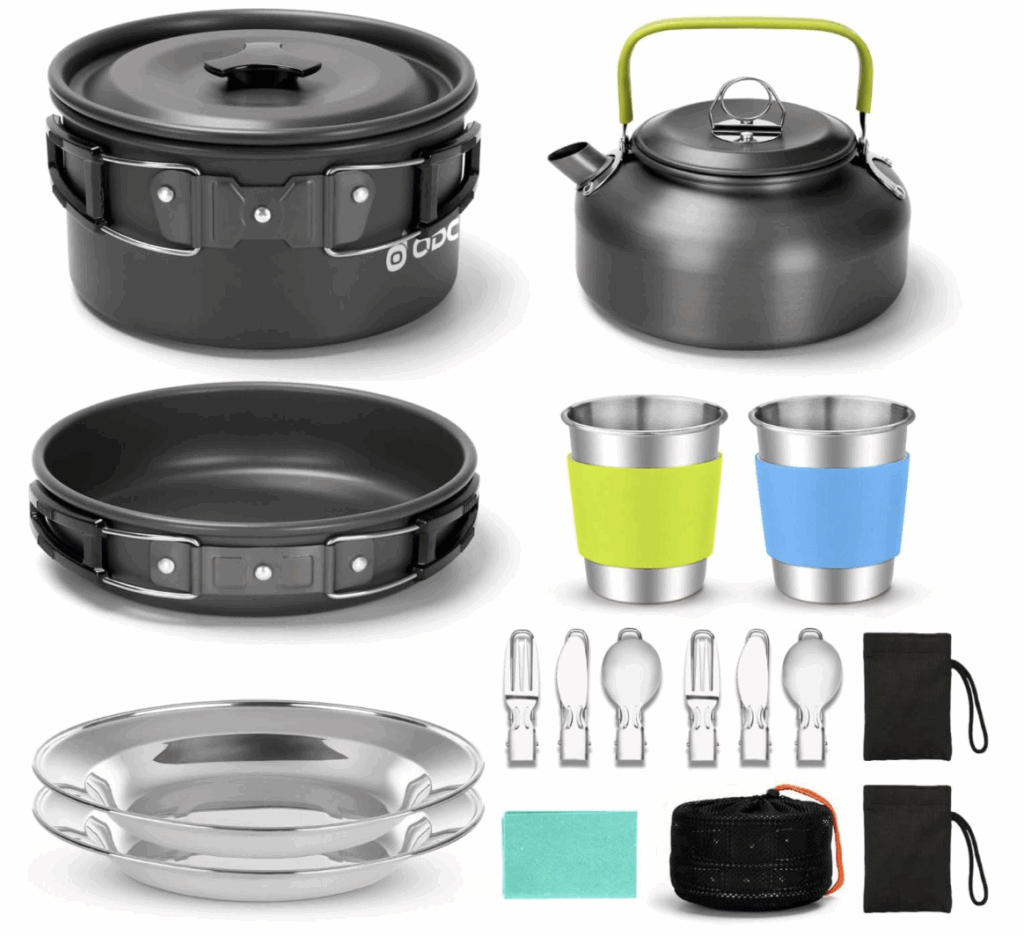
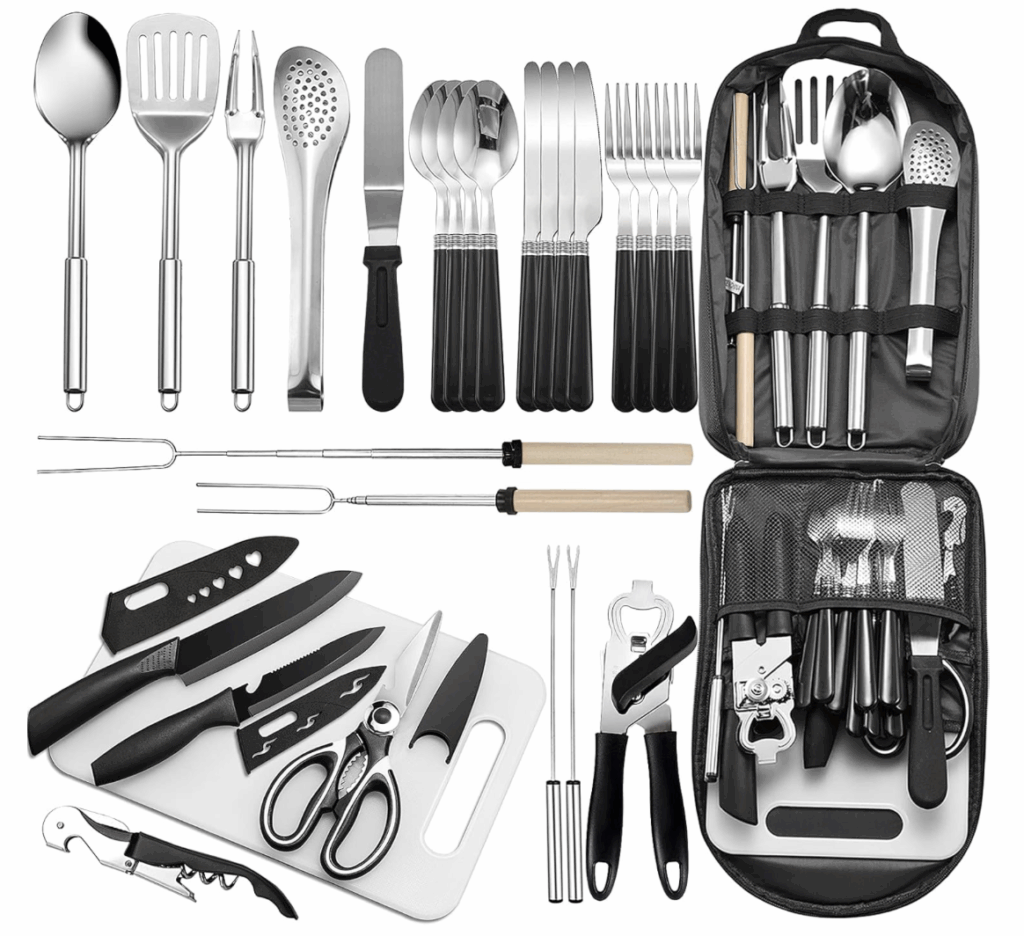
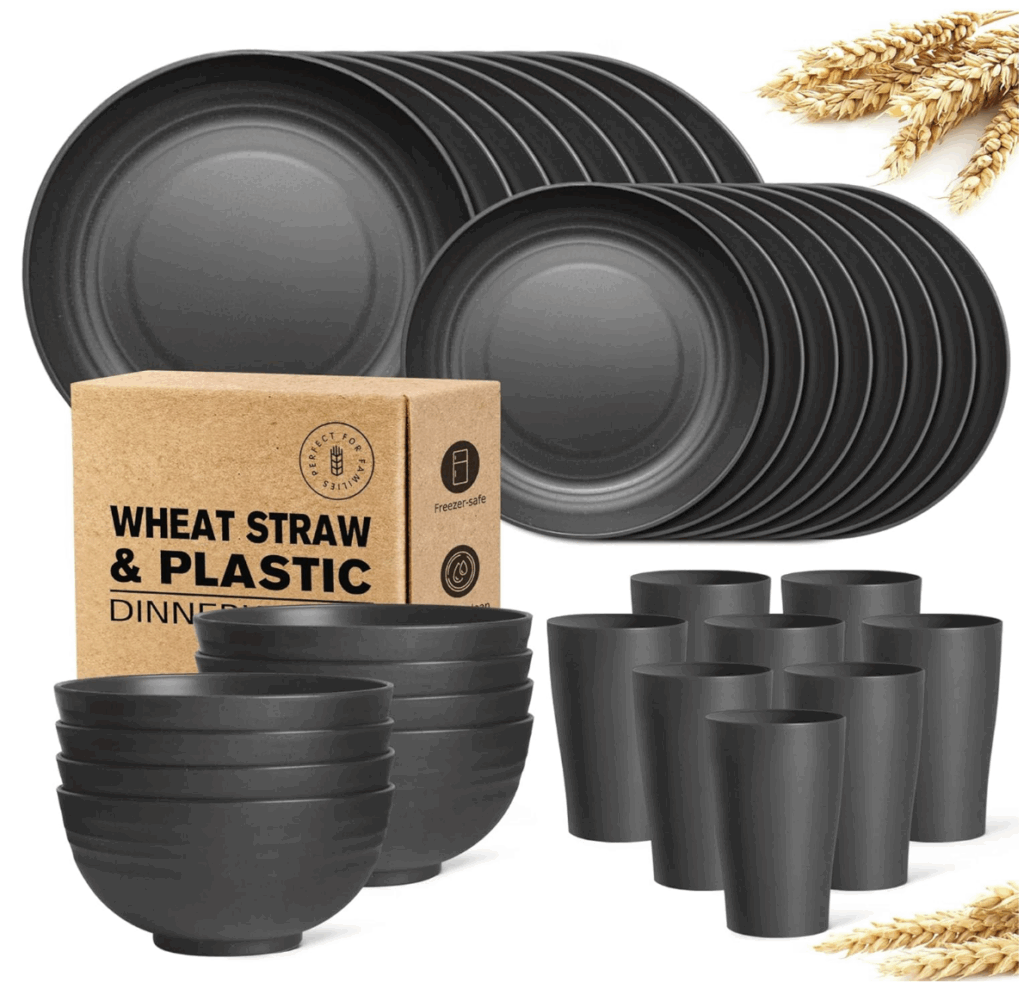
Teivio 32-Piece Kitchen Plastic Wheat Straw Dinnerware Set, Service for 8
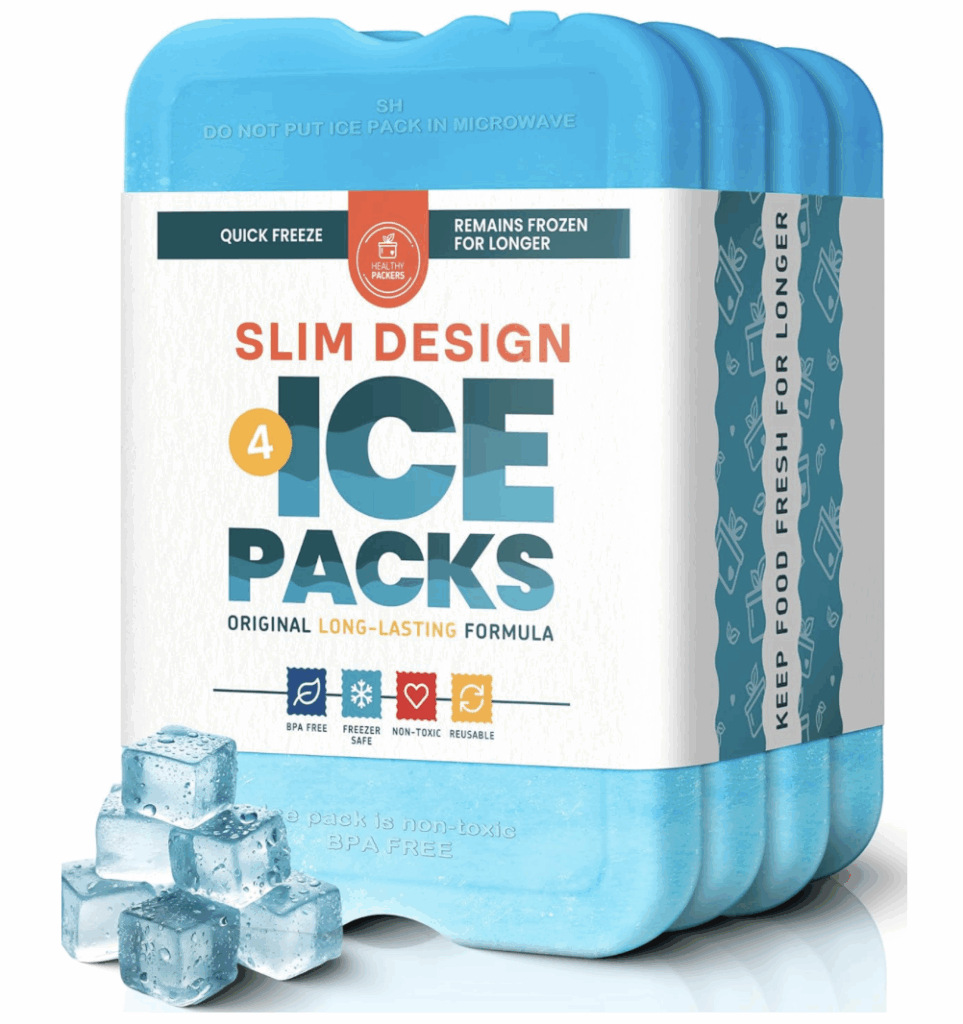
Healthy Packers Ice Packs for Lunch Boxes & Coolers – Freezer Packs
Cooler and Walkie Talkies
A reliable cooler and effective communication tools are crucial for a smooth camping experience. These items contribute significantly to comfort and safety in the outdoors.
Choose a high-quality, insulated cooler to keep perishables fresh. Pack it strategically, placing frequently used items on top and pre-chilling the cooler before filling it.
Walkie talkies are invaluable for communication when cell service is unavailable. They’re useful for coordinating activities or calling for help in emergencies.
Test your walkie talkies before the trip and bring extra batteries. Agree on communication protocols with your group to ensure effective use.
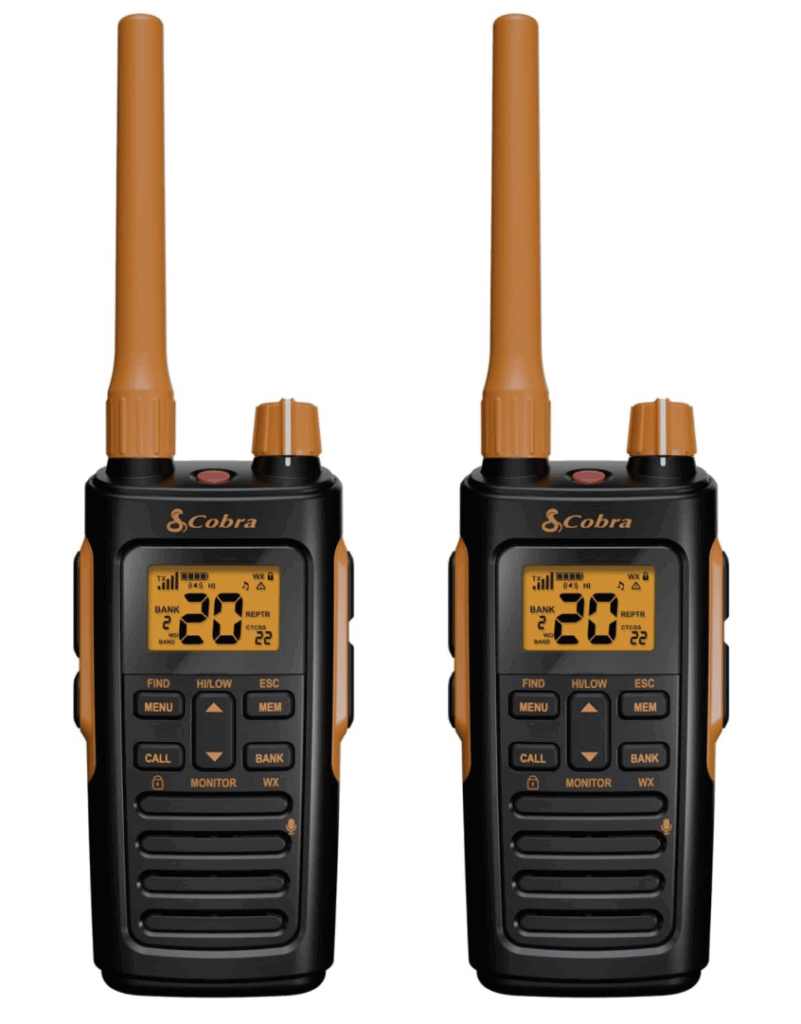
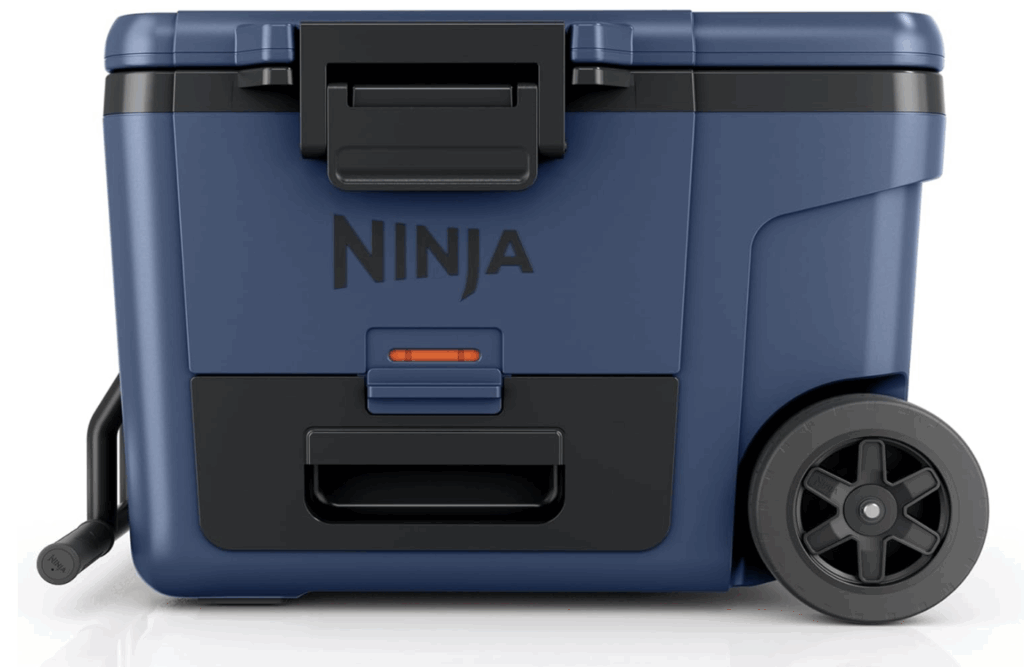
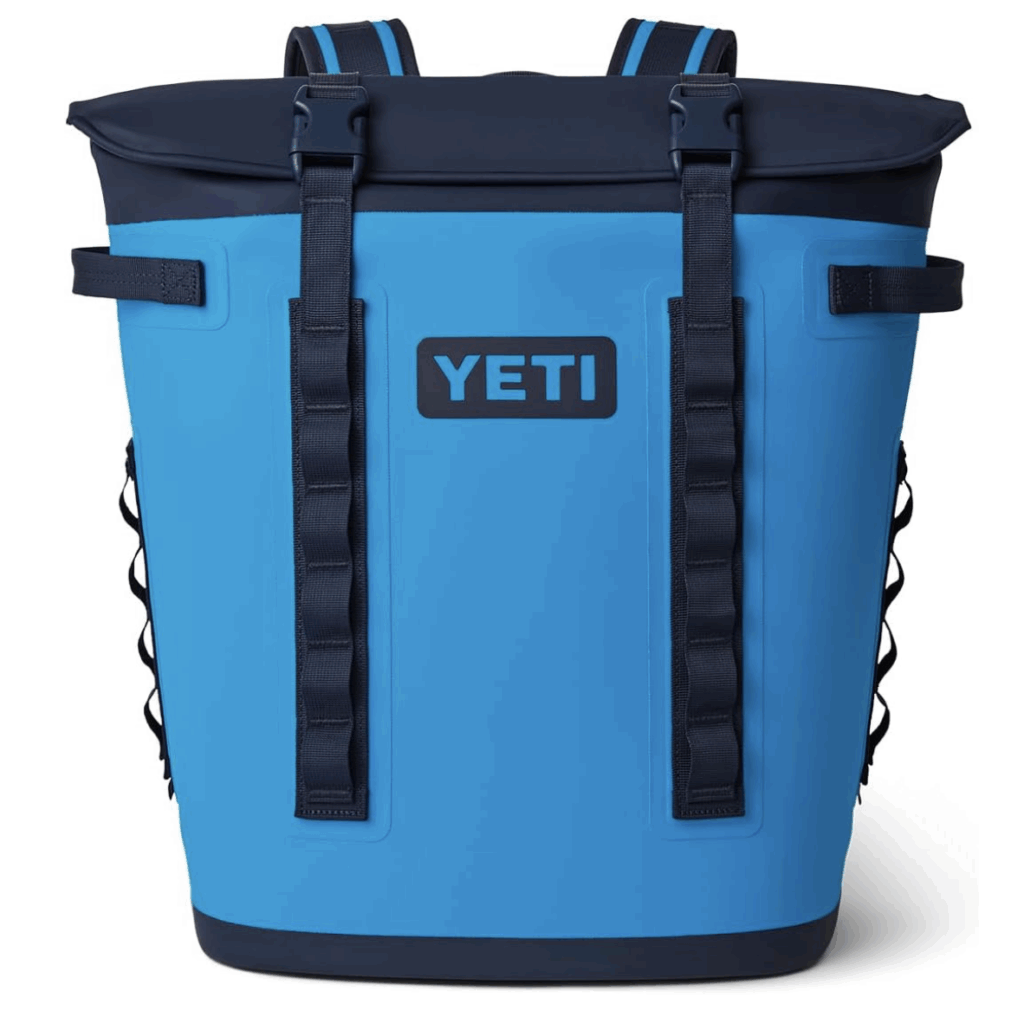
YETI Hopper M Series Backpack Soft Sided Coolers with MagShield Access
Lighting and Power Solutions
Proper lighting and power management are key to a comfortable and safe camping experience. Bring a variety of light sources, including headlamps, lanterns, and flashlights. LED options are energy-efficient and provide bright, long-lasting illumination.
Consider solar-powered chargers or portable power banks to keep essential devices charged. These are valuable for powering phones, GPS devices, or emergency radios.
Set up your lighting strategically around the campsite, focusing on areas like the kitchen, tent entrances, and pathways to enhance safety and convenience after dark.
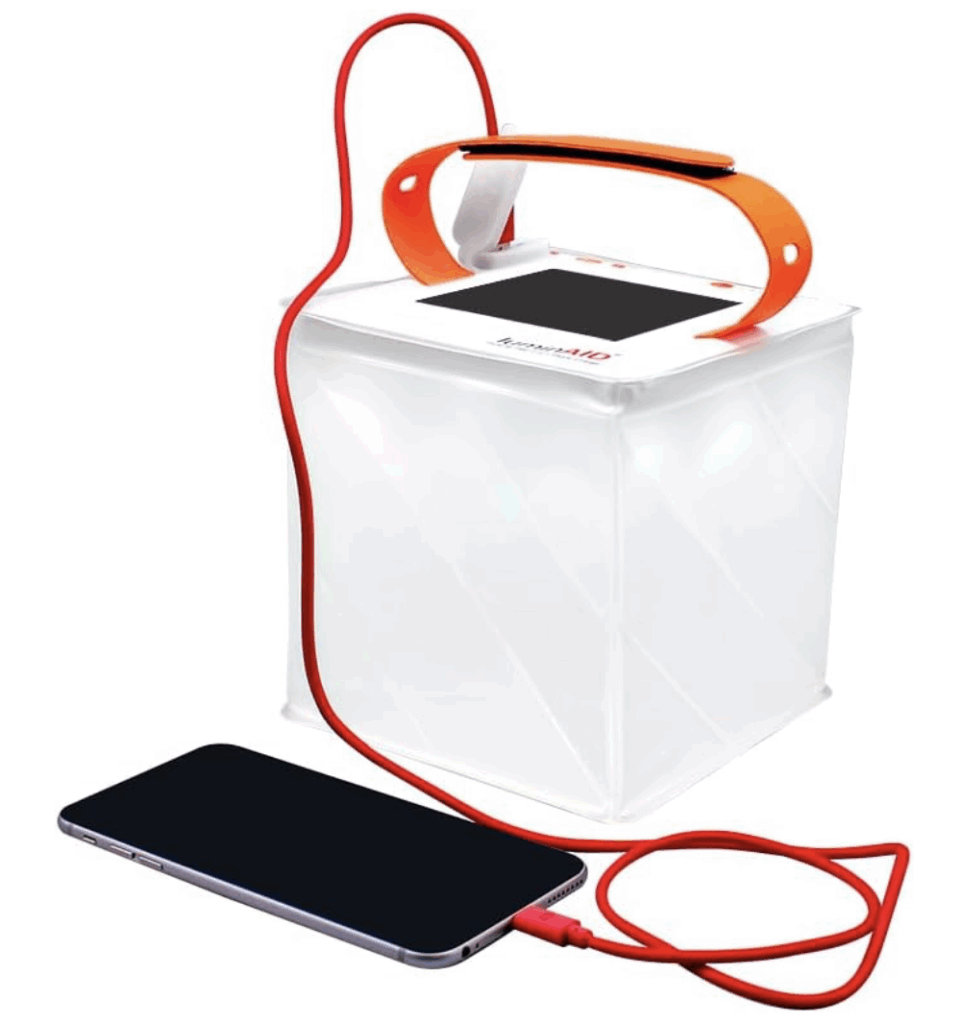
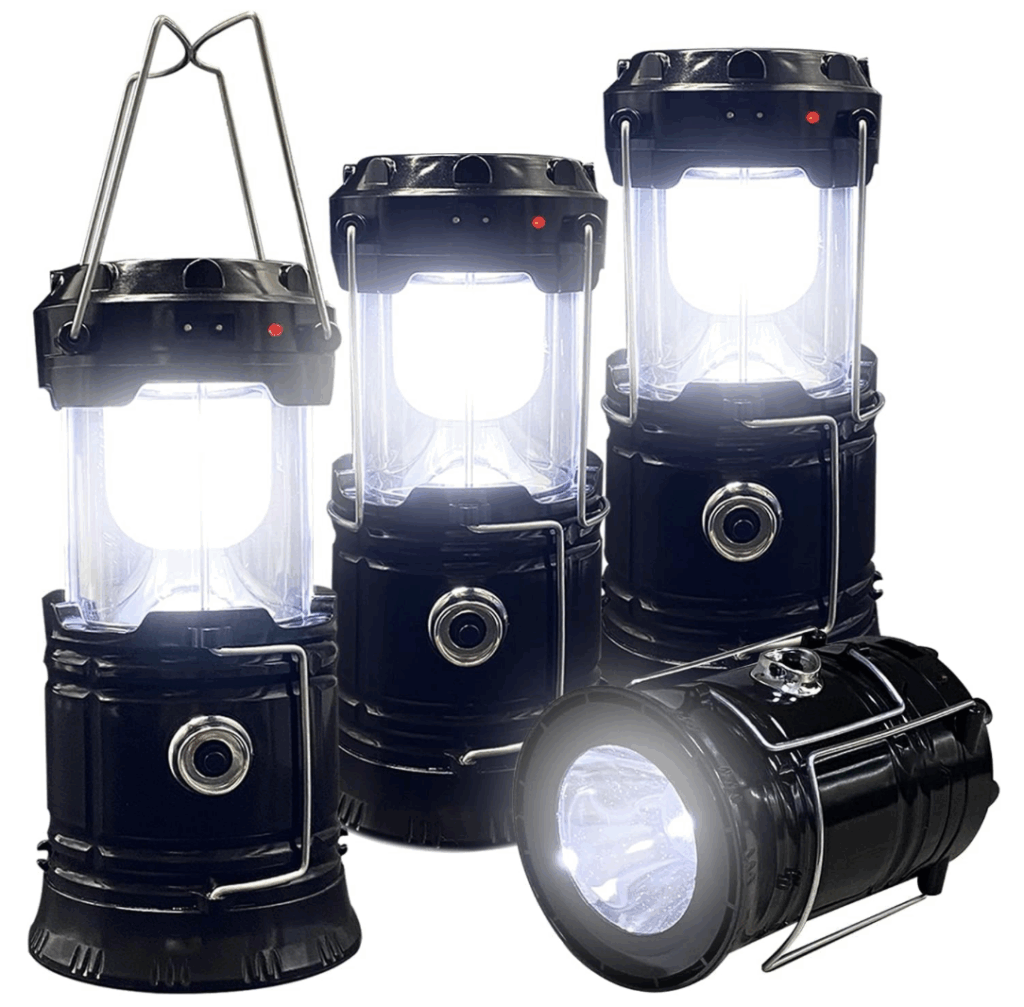
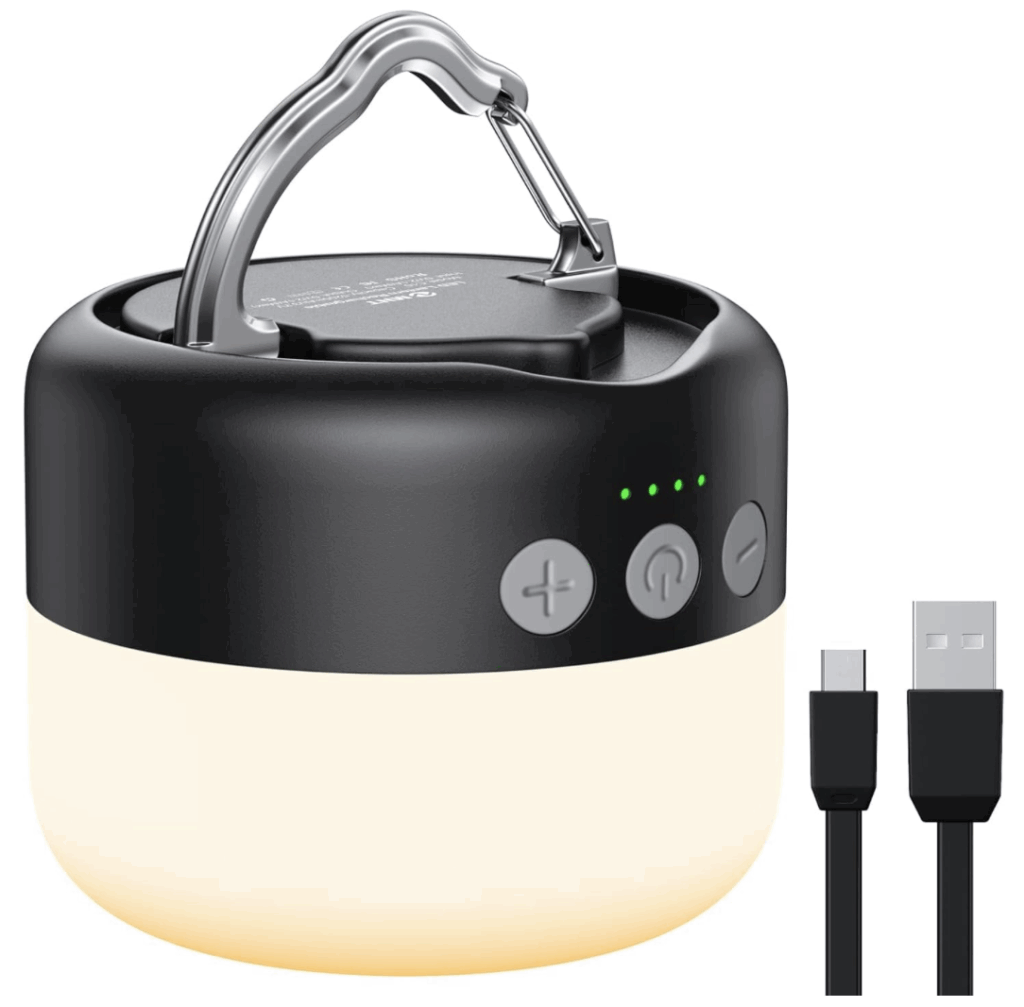
LED Camping Lantern Rechargeable 1000LM, Up to 300H Running Time Camping Tent Light
Safety and Preparedness
Ensuring safety and being prepared for various situations are crucial aspects of a successful camping trip. Let’s explore key elements of camping safety and preparedness.
First Aid Kit Essentials
A well-stocked first aid kit is a camping must-have. It provides peace of mind and the ability to handle minor injuries or emergencies in the outdoors.
Include basic supplies like bandages, antiseptic wipes, pain relievers, and any personal medications. Add items specific to your destination, such as altitude sickness medication for mountain trips.
Familiarize yourself with the contents of your kit before the trip. Consider taking a basic first aid course to enhance your preparedness.
Remember to check and restock your first aid kit regularly, replacing any expired items.
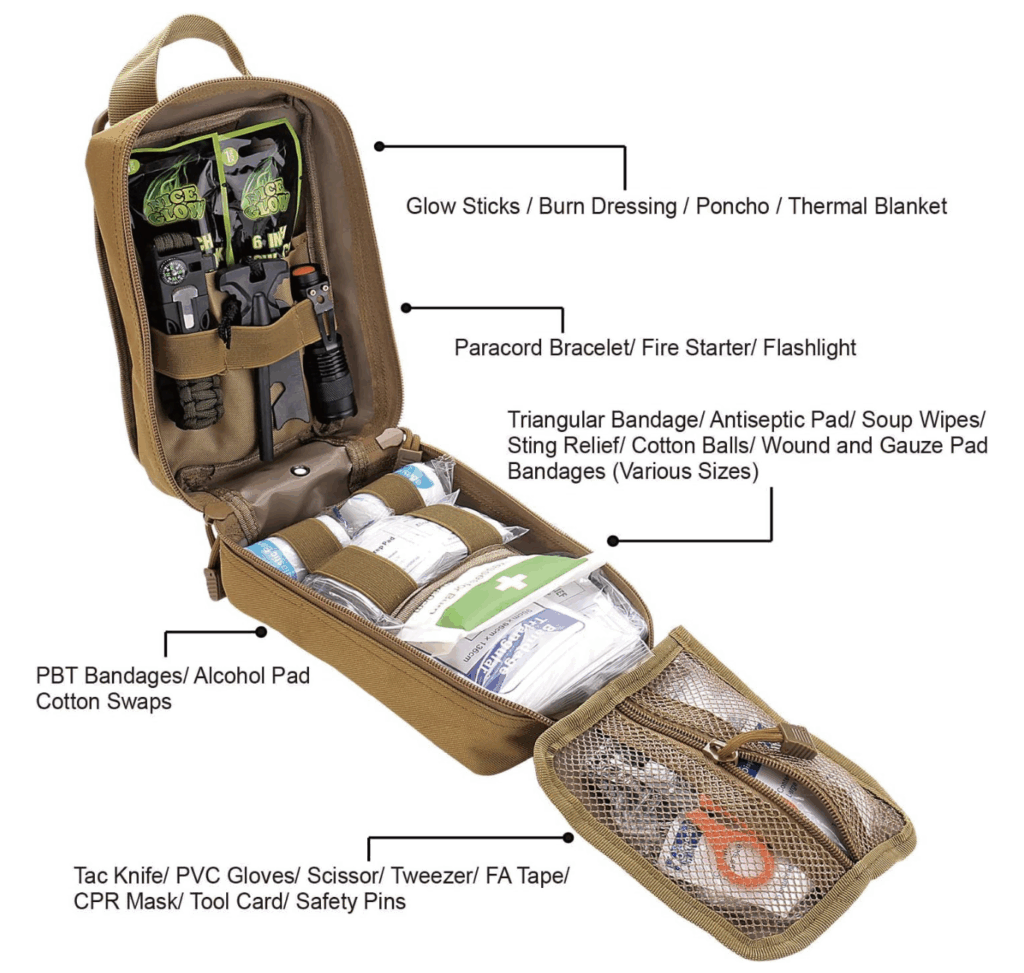
Navigation and Communication Tools
Reliable navigation and communication tools are essential for safe exploration and emergency situations while camping.
Bring a combination of navigation tools, including a physical map, compass, and GPS device. Learn how to use these tools before your trip.
Carry a fully charged cell phone, but don’t rely solely on it. A satellite communicator or personal locator beacon can be lifesaving in areas without cell coverage.
Always inform someone not on the trip about your plans, including your expected return date and emergency contact information.
Weather-Ready Gear
Being prepared for various weather conditions is crucial for a safe and comfortable camping experience. The right gear can protect you from unexpected weather changes.
Pack clothing layers that can be easily added or removed. Include moisture-wicking base layers, insulating mid-layers, and waterproof outer layers.
Bring rain gear, including a waterproof jacket and pants, even if the forecast looks clear. Weather can change quickly in outdoor environments.
Consider additional items like sun protection (hats, sunglasses, sunscreen) for hot weather and extra warm layers (gloves, thermal underwear) for cold conditions.
Planning Your Camping Trip
Proper planning is key to a successful and enjoyable camping experience. Let’s explore essential aspects of trip planning to ensure you’re well-prepared for your outdoor adventure.
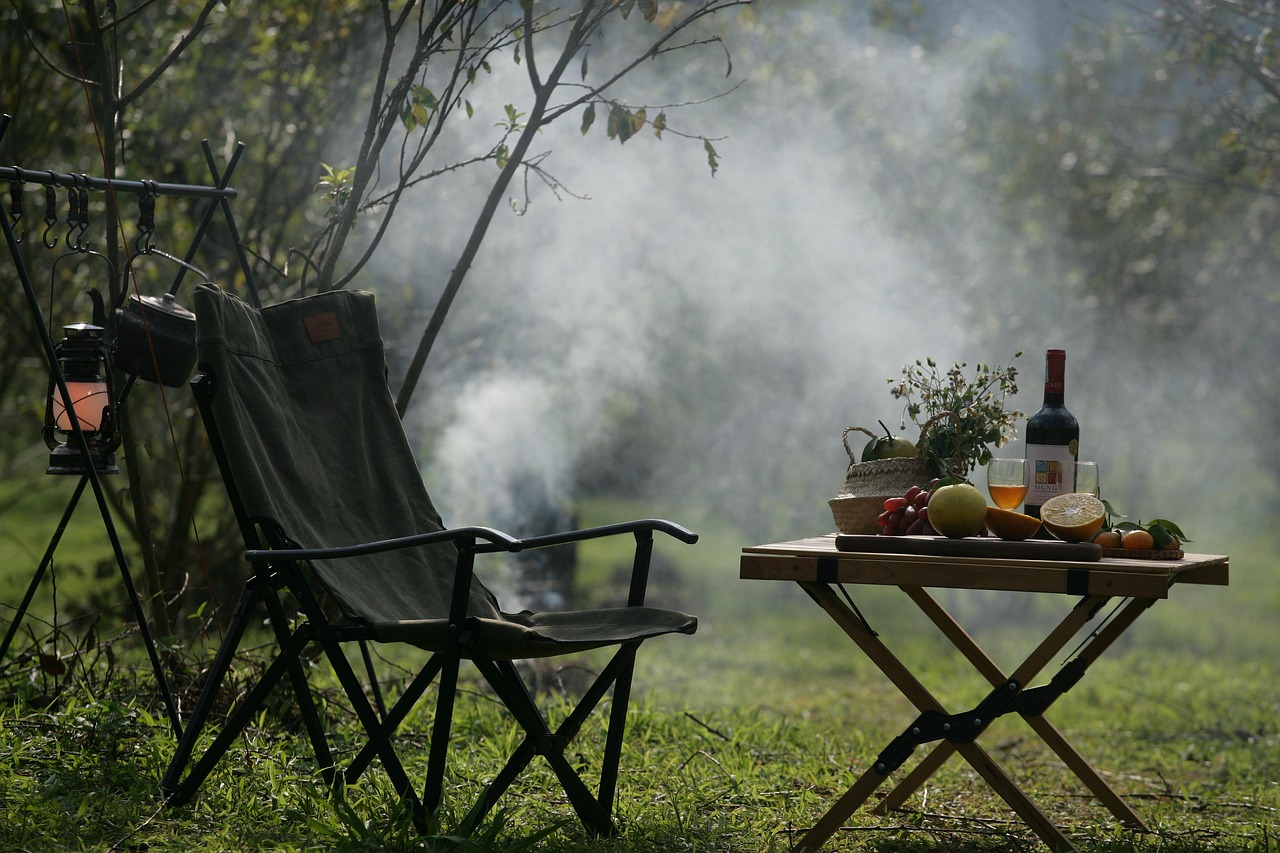
Crafting a Camping Checklist
A comprehensive camping checklist is an invaluable tool for ensuring you don’t forget any essential items. It helps streamline your packing process and reduces stress.
Start your checklist well in advance of your trip. Include categories such as shelter, sleeping gear, cooking equipment, clothing, and personal items.
Customize your list based on your specific trip details, including destination, duration, and expected weather conditions.
Review and update your checklist after each trip, noting any items you wished you had brought or those that weren’t necessary.
One-Day Camping Essentials
For short camping trips, it’s important to pack efficiently while ensuring you have all the necessary items for a comfortable experience.
Focus on the basics: shelter (tent or hammock), sleeping bag, food and water, appropriate clothing, and safety essentials like a first aid kit and navigation tools.
Opt for easy-to-prepare meals and snacks to minimize cooking equipment. Bring a small stove or use campfire cooking methods if permitted.
Don’t forget personal items like toiletries, sunscreen, and insect repellent. A small daypack can be useful for hikes or exploring around the campsite.
Check out our review of the best lightweight backpacks for your hiking adventure.
Car Camping Considerations
Car camping offers the advantage of being able to transport more gear and amenities than one might take on a backpacking trip, making it a popular choice for those looking to enjoy the outdoors without sacrificing too much comfort. However, even with the capacity to bring additional items, it’s vital to approach packing with intention and organization to make the most of the experience.
Start by categorizing your gear into essentials and extras. Essentials might include your tent or sleeping setup, cooking equipment, and personal items. Extras could be things like camping chairs, additional cooking gear for more elaborate meals, or comfort items like pillows and portable tables.
Consider how you will organize your car to optimize space and access. Place frequently used items within easy reach, ideally in a sequence that reflects how you plan to set up your campsite.
When selecting your campsite, take into account the proximity to amenities like restrooms or water sources, and consider how the location might affect your setup or packing. A spot with access to these amenities might allow you to leave certain items at home, lightening your load.
Additionally, don’t overlook the importance of preparing for the environment you’ll be camping in. This might mean packing gear for inclement weather even if the forecast looks favorable, or bringing along extra lighting options if you’re heading to a remote area without existing infrastructure.
Lastly, before hitting the road, double-check your vehicle itself; ensure it’s in good working order and that you have all necessary tools and supplies for any unforeseen car troubles. In the spirit of preparedness, a well-packed emergency kit tailored to both your camping needs and vehicle could be your best companion.








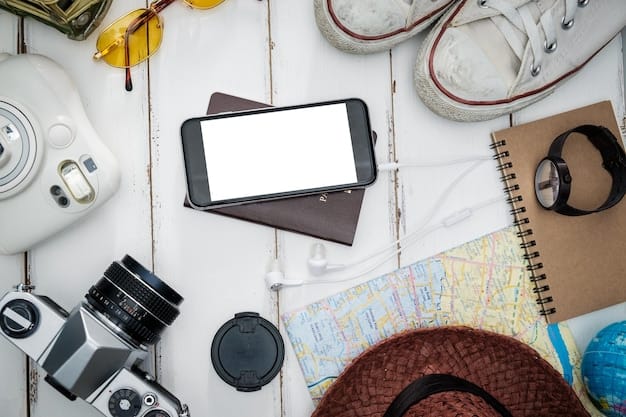

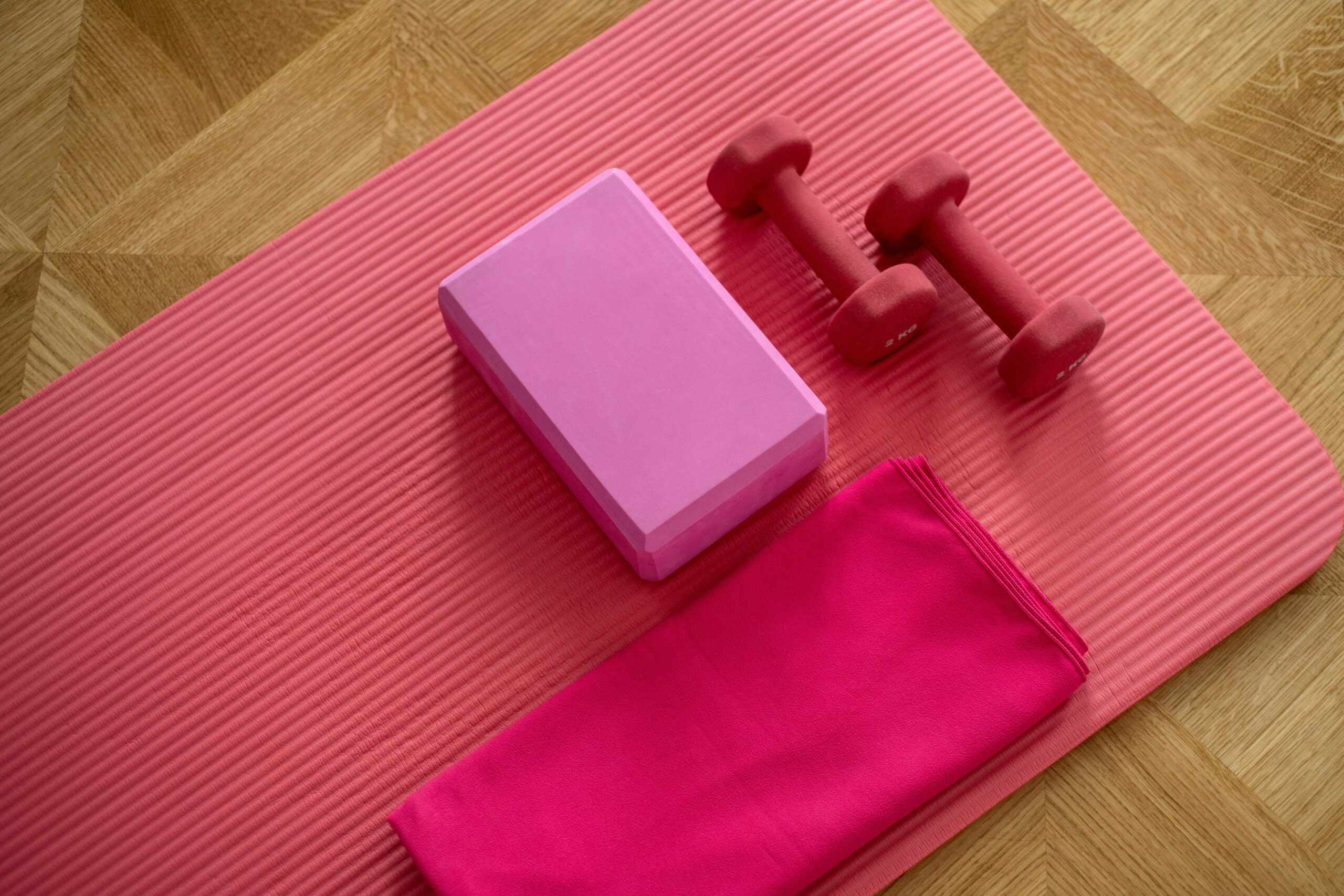


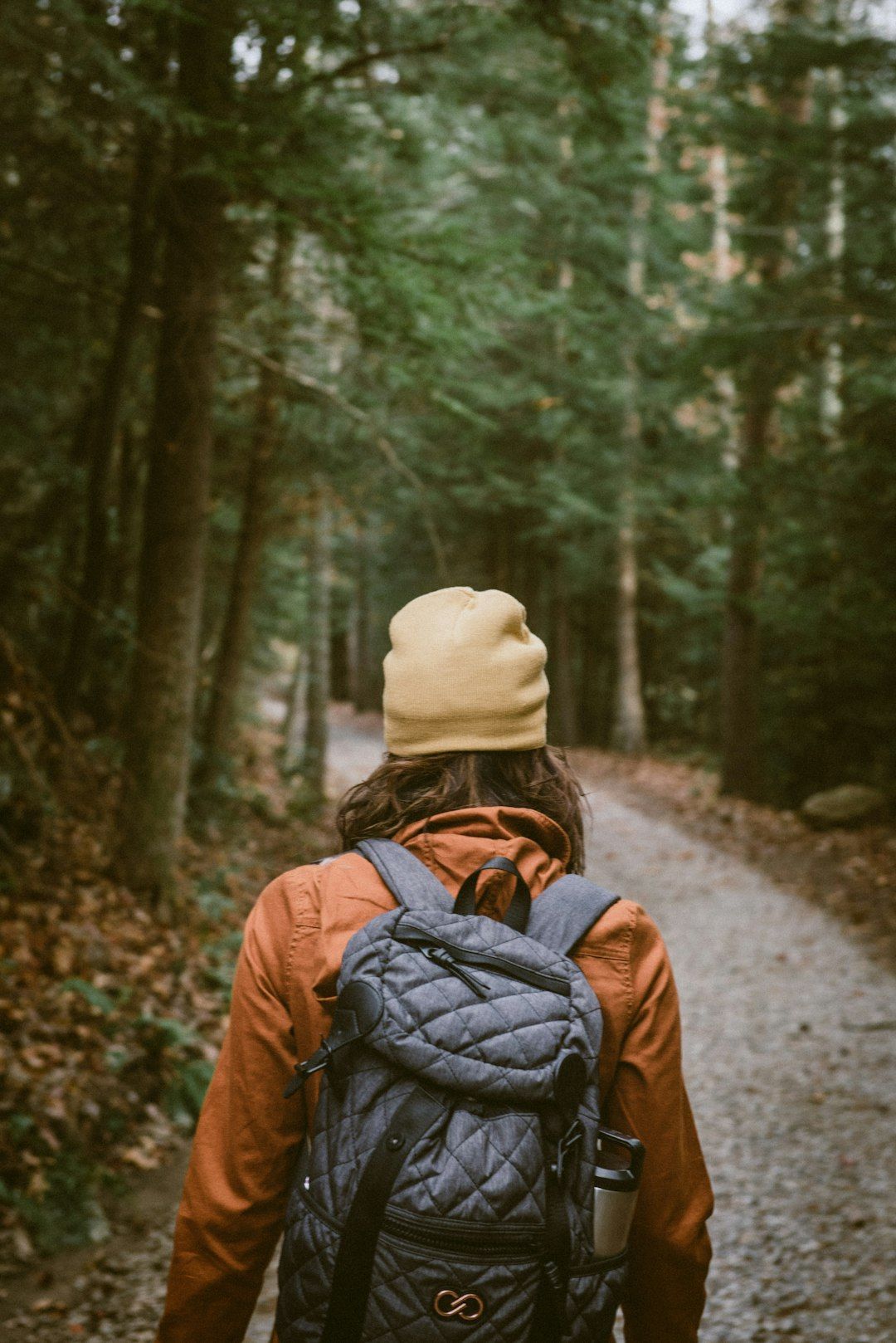

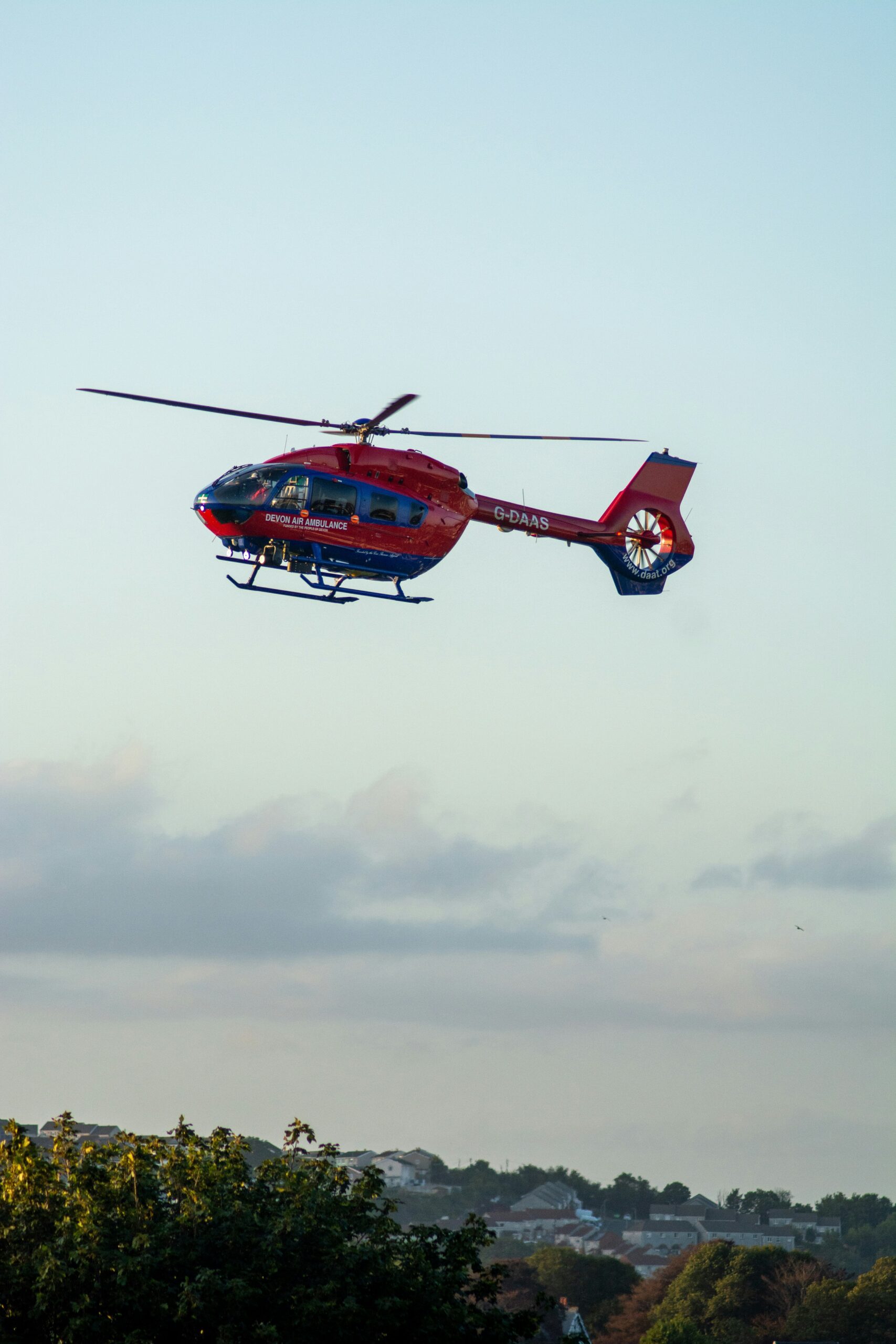
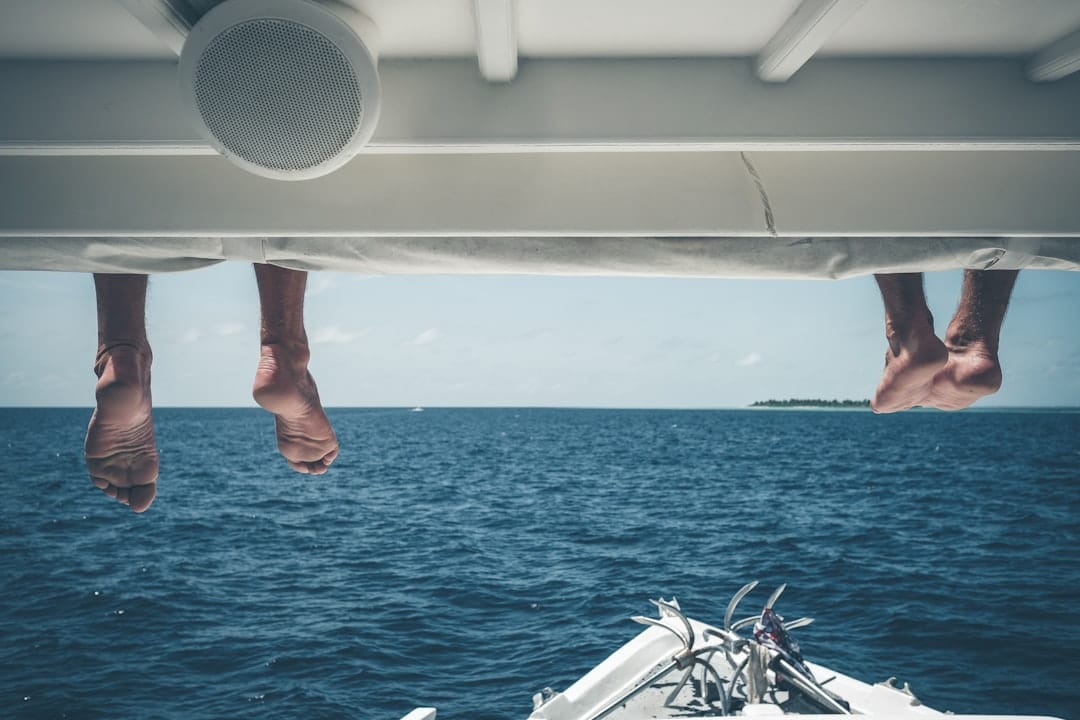
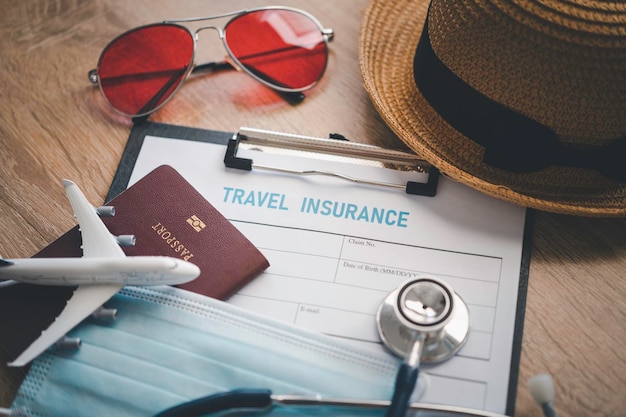
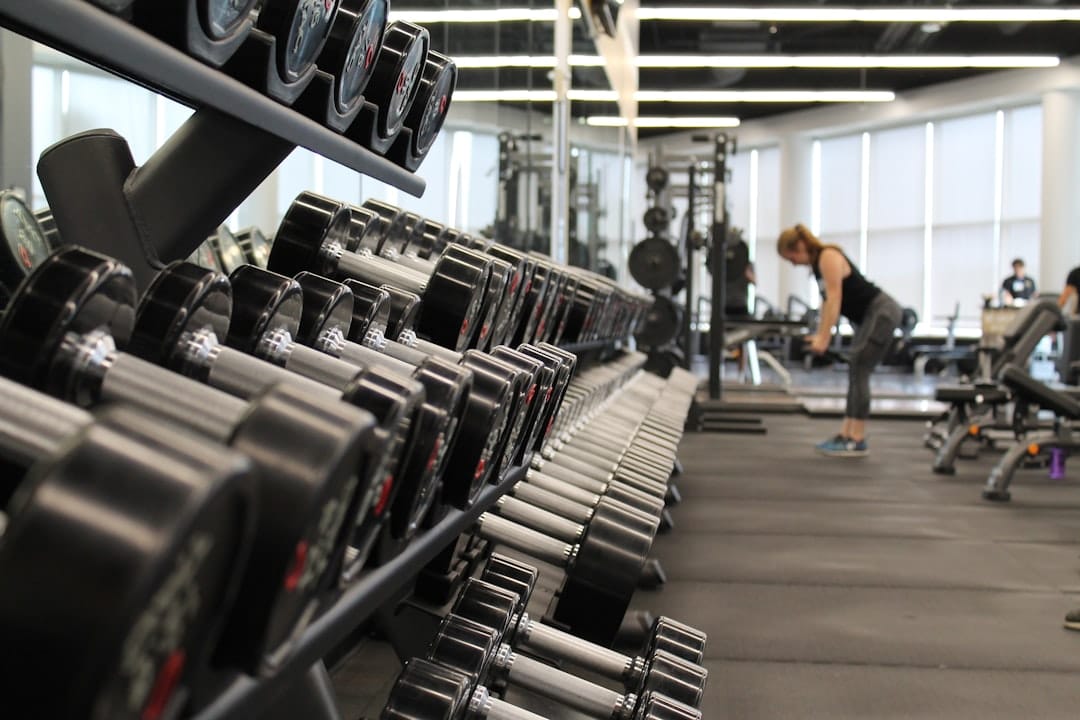


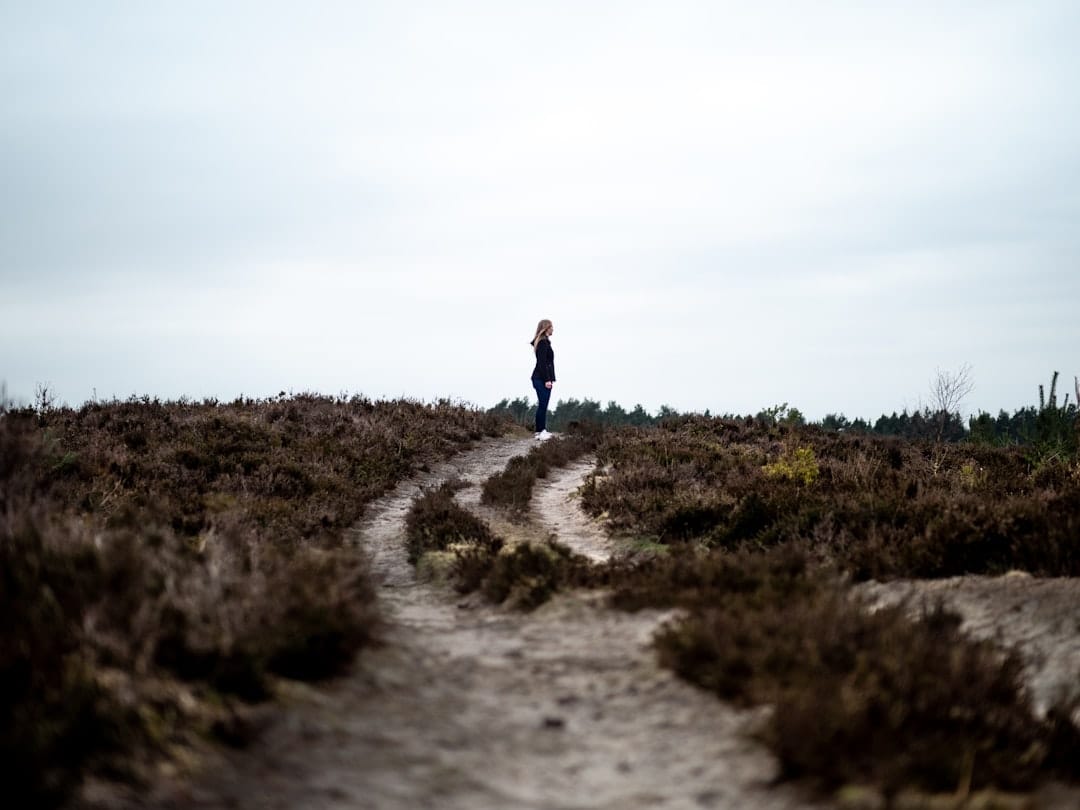



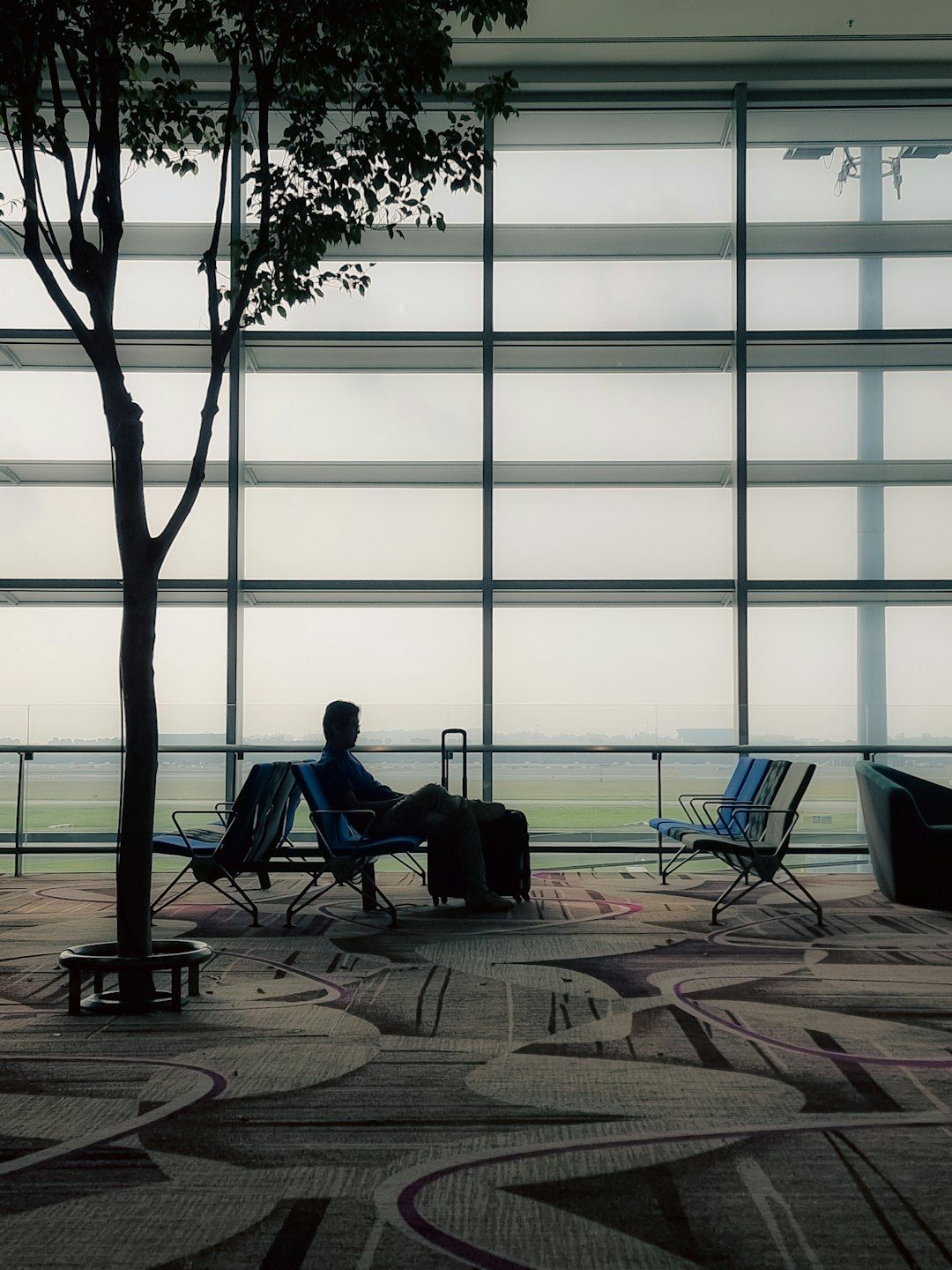

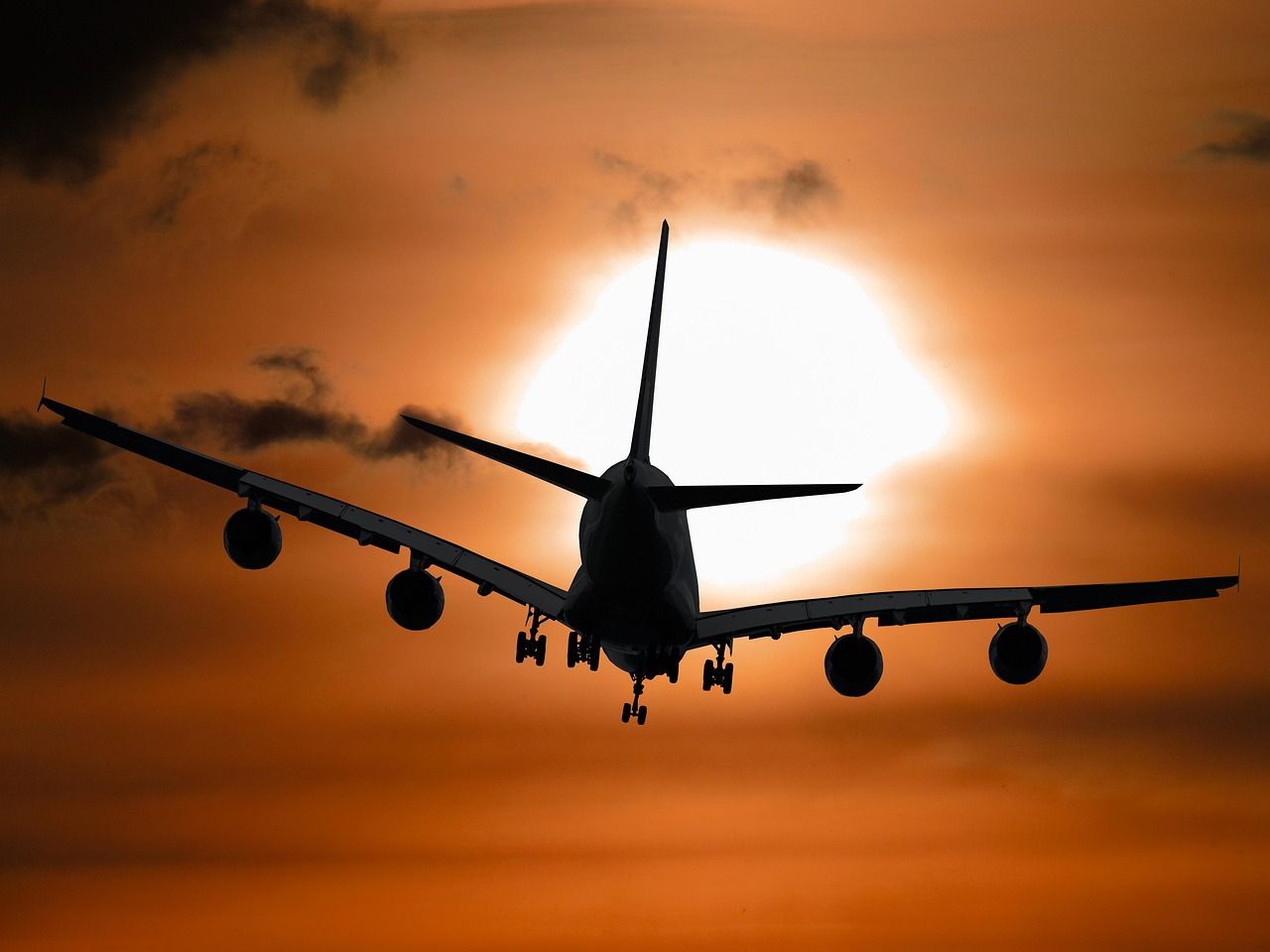


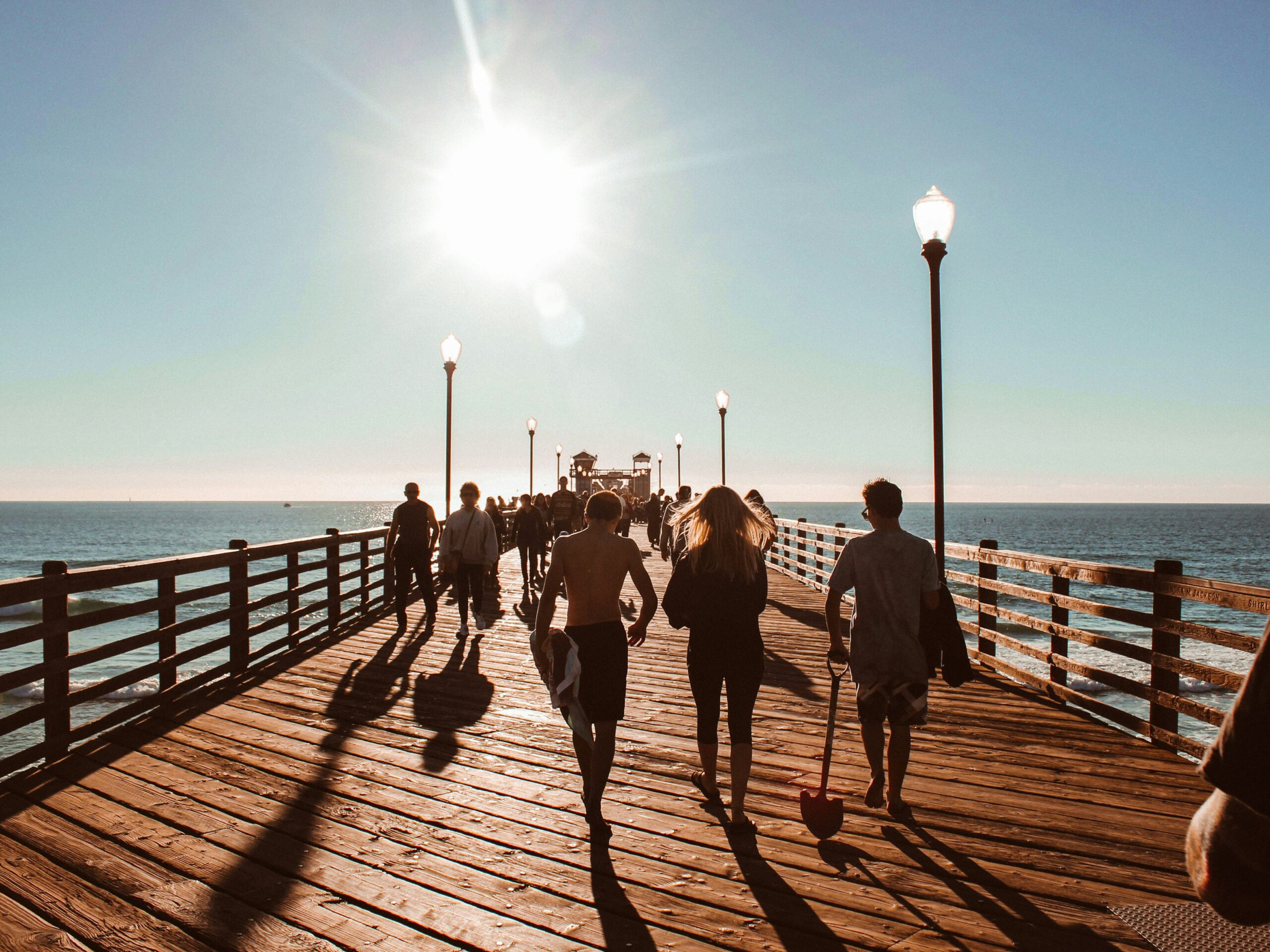
Leave a Reply